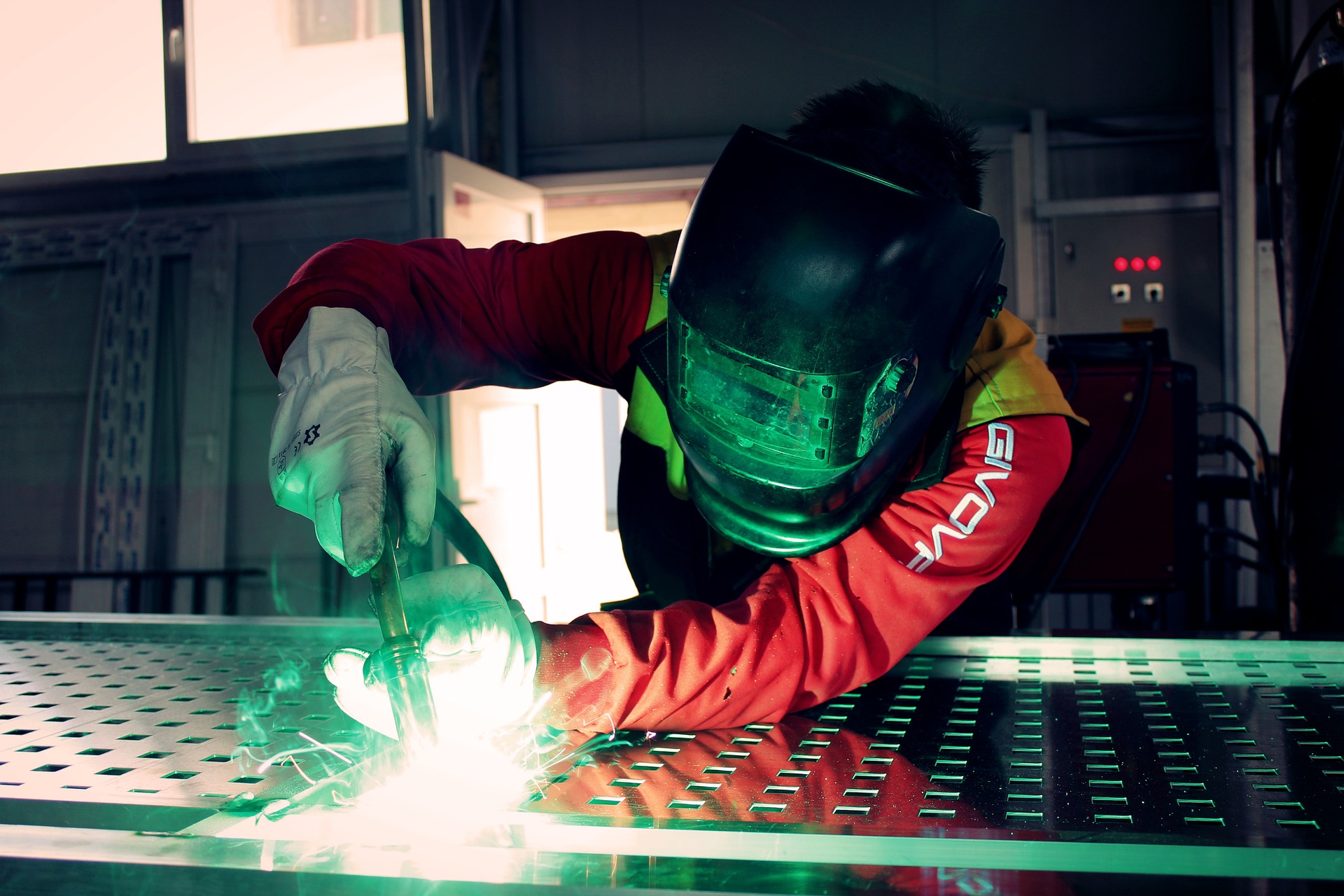Forging Futures: Navigating Careers in Welding
Explore the diverse landscape of welding professions, from shipyards to aerospace. Uncover the skills, specializations, and industry trends shaping this vital trade. Whether you're considering a career change or seeking growth opportunities, discover how welding's blend of craftsmanship and technology offers potential for those willing to invest in their skills. Learn about the challenges and rewards awaiting in this essential field that literally holds our world together.

The art and science of welding touch nearly every aspect of our modern lives, forming the backbone of countless industries. This comprehensive overview delves into the multifaceted world of welding, illuminating potential career paths and the skills required to succeed in this dynamic field.
Sector Diversity in Welding
Welding professionals find themselves in demand across a wide spectrum of industries:
• Industrial Manufacturing: From automotive assembly lines to appliance production, welders play a crucial role in bringing products to life.
• Construction and Infrastructure: Skyscrapers, bridges, and pipelines all rely on the expertise of skilled welders to ensure structural integrity.
• Marine Engineering: Shipyards depend on welders for both new vessel construction and ongoing maintenance.
• Energy Production: Traditional fossil fuel extraction, refining, and emerging renewable technologies all require specialized welding knowledge.
• Aviation and Space: Cutting-edge aerospace projects demand precision welding for critical components.
This diverse application of welding skills underscores the profession’s importance in shaping our technological landscape.
Specialized Welding Paths
Within the broader field of welding, several specialized career tracks have emerged:
• Structural Welding: Focusing on large-scale building projects and infrastructure.
• Pipeline Welding: Critical for energy transport and utility systems.
• Aerospace Welding: Employing advanced techniques for aircraft and spacecraft fabrication.
• Underwater Welding: Combining diving skills with welding expertise for marine applications.
• Welding Inspection and Quality Control: Ensuring safety and adherence to rigorous standards.
• Robotic Welding Systems: Programming and maintaining automated welding equipment.
Each of these specializations offers unique challenges and opportunities for career advancement.
Critical Skills for Welding Success
Excelling in the welding industry requires a combination of technical expertise, physical capabilities, and personal attributes:
Technical Proficiencies: • Mastery of various welding processes (MIG, TIG, stick, etc.) • Blueprint interpretation and spatial visualization • Understanding of metallurgy and material properties • Rigorous adherence to safety protocols and industry standards
Physical Demands: • Fine motor control and hand-eye coordination • Physical endurance for prolonged periods of focused work • Visual acuity and depth perception
Personal Qualities: • Precision and attention to detail • Analytical and problem-solving mindset • Ability to work both independently and as part of a team • Commitment to ongoing learning and skill development
Qualifications and Certifications: • High school diploma or equivalent as a minimum • Vocational training, apprenticeships, or associate degrees in welding technology • Industry-recognized certifications (e.g., AWS, ASME) • Specialized certifications for niche sectors (e.g., aerospace, underwater)
Adaptability and a willingness to embrace new technologies are crucial for long-term success in this evolving field.
Industry Outlook and Employment Landscape
While the U.S. Bureau of Labor Statistics projects modest growth in overall welding employment through 2031, several factors contribute to the continued relevance of the profession:
• Infrastructure Revitalization: Aging structures and systems create ongoing demand for skilled welders.
• Technological Innovations: Advancements in materials and techniques open new specialized roles.
• Demographic Shifts: An aging workforce potentially creates openings for new entrants to the field.
• Global Projects: International developments may provide opportunities for those willing to work abroad.
It’s important to note that while automation is impacting some aspects of welding, the need for skilled professionals capable of complex tasks and overseeing automated systems remains significant.
Compensation and Benefits in Welding Careers
Welding careers often offer competitive compensation, though exact figures can vary widely based on factors such as experience, specialization, and geographic location. Generally, the field provides stable income potential with room for growth.
Typical salary progression: • Entry-level positions often start in the lower salary range • Experienced welders and those with specialized skills command higher compensation • Supervisory roles and certified inspectors frequently fall into upper salary brackets
Many welding positions come with comprehensive benefits packages that may include: • Health insurance coverage • Retirement savings plans • Paid time off and vacation days • Opportunities for overtime pay • Support for continuing education and additional certifications • Provision of necessary safety equipment
Certain specialized roles, particularly those involving travel or hazardous conditions, may offer additional compensation such as per diems or hazard pay.
Conclusion: A Career Forged in Opportunity
The welding profession continues to offer diverse and rewarding career paths across numerous industries. While specific job availability can fluctuate, those with the right combination of skills, qualifications, and a commitment to ongoing learning may find opportunities for job security and advancement. As the industry evolves, welders who remain adaptable and embrace new technologies will be best positioned to navigate the changing landscape of this essential and dynamic field.
For those considering a career in welding, it’s advisable to research current local market conditions, connect with industry professionals, and potentially pursue education or apprenticeship programs to gain a competitive edge in this skilled trade.






